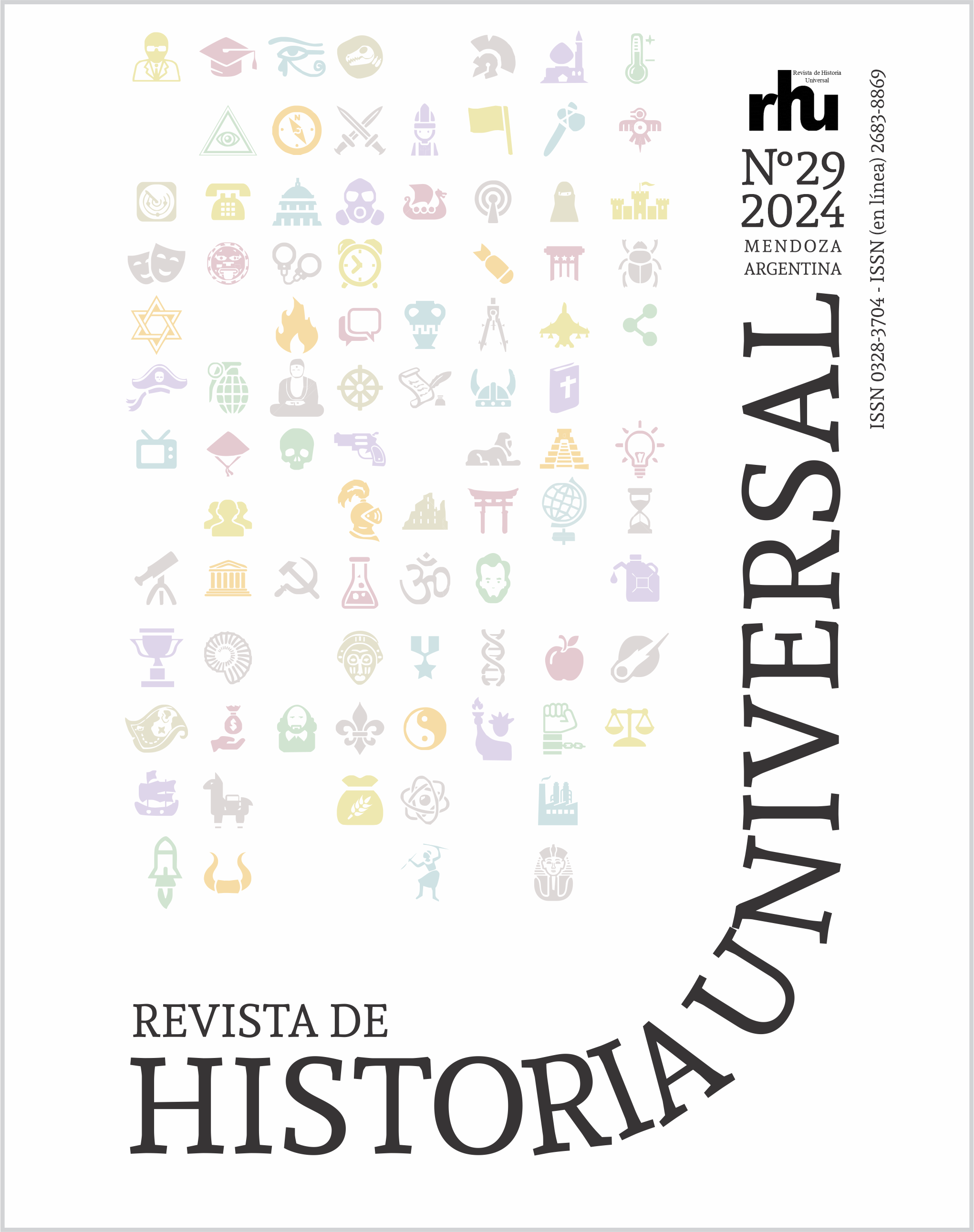The Korean War and the Genesis of the Sino-Indian Confrontation
Keywords:
Korea, non alignment, buddhism, confucianism, maoismAbstract
The objective of this work was to verify that the Korean War (1950-1953) was the cause of Beijing's anger towards New Delhi, which ended in a war in 1962 and the breakdown of diplomatic relations until the end of the '70s.
Ashley, when India supported a resolution at the UN, whose text mentioned by the US declared North Korea an aggressor, and the dispatch of troops to the coalition led by General MacArthur collided with a vision of the leaders of the People's Republic of China. The latter considered Korea as its own land, based on a nationalist view of the history of the ancient Sinic Empire.
In order to substantiate the work, a bibliographic review was carried out on various approaches to the topic, as well as journalistic works and official sources.
References
Ali, T. (1992). Los Nehru y los Gandhi. La dinastía de la India. Editorial Vergara.
Álvarez, P. (2021). La unificación desde abajo. Incidencia de la sociedad civil en las relaciones internacionales desde una perspectiva histórica. Colección, 32(2), 125-161.
Barnes, R. (2013). Between the Blocs: India, the United Nations, and Ending the Korean War. The Journal of Korean Studies, 18(2), 263-286.
Brown, J. D. (1962). India. Biblioteca Universal de Life. Offset multicolor.
Conboy. K. & Hannon, P. (1995). Tropas de Élite de India y Pakistán. Ejércitos y batallas. Ediciones del Prado.
Cummings, B. (2004). El lugar de Corea en el sol: Una historia moderna. Comunic-arte Editorial.
Declaración de El Cairo, 26 de noviembre, 1943. https://www.ndl.go.jp/constitution/ e/shiryo/01/002_46/002_46tx.html
de Laurentis Ollero, E. (2000). Historia reciente de Corea. De la división del país a la transición democrática. Breve repaso histórico. En A. Ojeda; E. de Laurentis; y A. Hidalgo (Eds.). Corea frente a los desafíos del siglo XXI. Primer simposio internacional sobre Corea (pp. 17-30). Centro Español de Investigaciones Coreanas.
Doménech del Río, A. J. (2006). La lengua escrita en coreano y la creación del alfabeto coreano Hangeul. Baetica. Estudios de Arte, Geografía e Historia, 28, 195-213.
Doménech del Río, A. J. (2001). Una introducción al pensamiento coreano: tradición, religión y filosofía. En Ojeda, A.; E. de Laurentis (Eds). Sociedad, economía y política en Corea. Segundo Simposio Internacional sobre Corea (pp. 98-123). Centro Español de Investigaciones Coreanas.
Duncan, J. B. (2009). Confucianismo: el sistema tributario y las relaciones sino-coreanas. Revista de Relaciones Internacionales, 103, 155-167.
Gandhi, I. (1979). Cartas a la gente joven. Editorial Albenda.
García Daris, L. (1985). Las religiones como fundamento cultural de Corea. Oriente y Occidente, 6 (1/2), 79-94.
Guha, R. (2019). India. After Gandhi. The History of the world’s largest democracy. Harper- Collins books.
Guitard, O. (1962). Bandung y el despertar de los pueblos coloniales. EUDEBA.
Hane, M. (2003). Breve historia del Japón. Alianza Editorial.
Hobsbawm, E. (2010). Historia del siglo XX (10° edición. 2° reimpresión). Crítica.
Kim, T. (2007). China’s ascendy and the future of the Korean Peninsula. En F Nicolas (Ed.). Korea in the New East Asia integration and the China factor (pp. 117-134). Routledge.
Ikeda, D. (2019). Elige la vida: diálogo entre Arnold J. Toynbee y Daisaku Ikeda (1 ° edición). Azul índigo.
Lee, K.-B. (1988). Nueva Historia de Corea. EUDEBA.
McNall Burns, E. (1964). Civilizaciones de Occidente. Su historia y su cultura (8° edición). Ediciones Peuser.
Metcalf, B. D. & Metcalf, T. R. (2014). Historia de la India (3° edición). Akal.
Moraes, F. (1971). Nehru. Ediciones Grijalbo.
Quiles, I. (1987). El alma de Corea (Educación. Cultura. Filosofía). Depalma.
Rao, N. (2021, octubre 30). ‘Please smoke to keep me company’ – What a tired Mao told Vijaya Lakshmi Pandit in China. The Print. https://theprint.in/pageturner/excerpt/please-smoke-to-keep-me-company-what-a-tired-mao-told-vijaya-lakshmi-pandit-in-china/758857/
Romero Castilla, A. (2009). De Choson a Chosen: unión y factura de la nación coreana. En J. L. León Manríquez (Coord.). Historia mínima de Corea. (pp. 69-116). El Colegio de México. Centro de Estudios de Asia y África.
Rupar, B. (2023). Los "chinos". La conformación del maoísmo en Argentina (1965- 1974). Ediciones CEHTI. Ediciones Imago Mundi.
Saz Campos, I. (1993). Historia del mou contemporáneo. Generalitat Valenciana.
Sheean, V. (1960). Nehru. Plaza & Janes Editores.
Seligson, S. (2009). Desde los orígenes hasta fines del siglo XIV D.C. En J. L. León Manríquez (Coord.). Historia mínima de Corea (pp. 23-66). El Colegio de México. Centro de Estudios de Asia y África.
Seth, M. (2008). Fiebre educativa: sociedad, política, y el anhelo de conocimiento en Corea del Sur. Prometeo Libros.
Tharoor, S. (2009). Nehru. La invención de India. Tusquets editores.
Yang, E-S. (2002). Origen y características generales de la cultura coreana. Documentos de trabajo, 1, 1-12.
Downloads
Published
How to Cite
Issue
Section
License

This work is licensed under a Creative Commons Attribution-NonCommercial-ShareAlike 4.0 International License.







